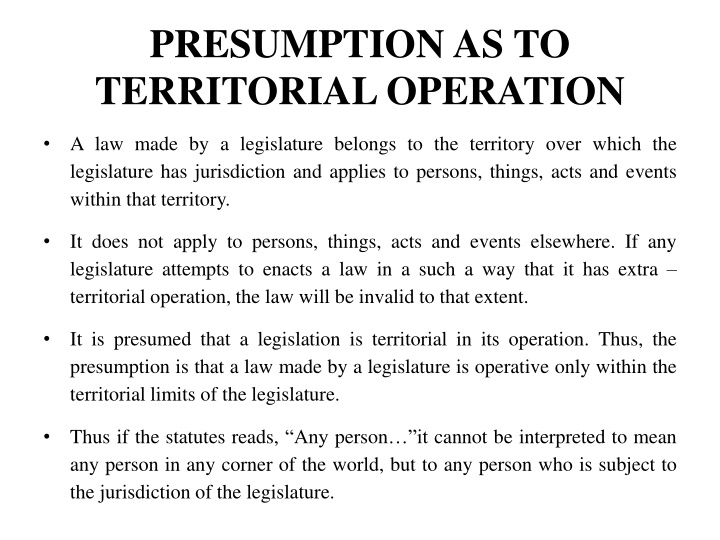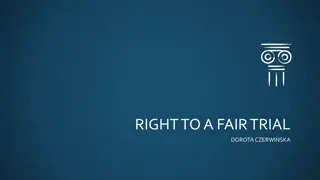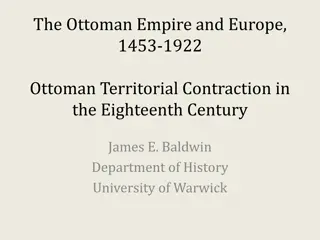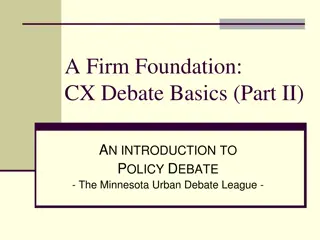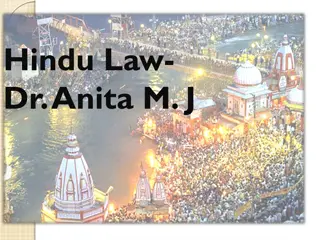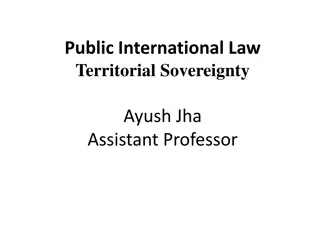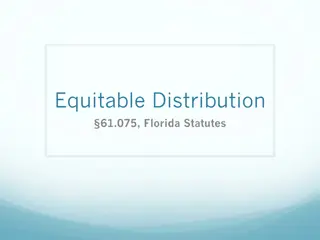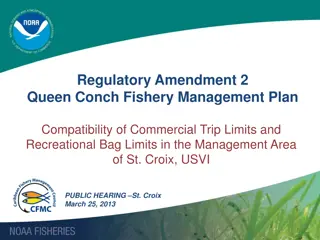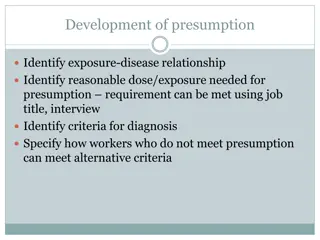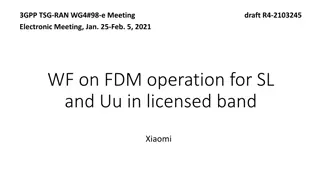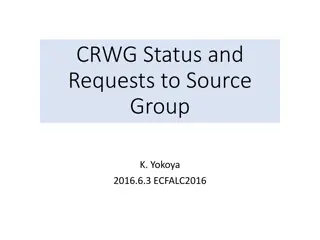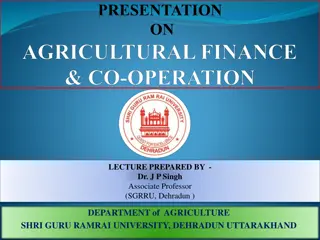PRESUMPTION AS TO TERRITORIAL OPERATION
A legislative law is assumed to apply within its jurisdictional territory. However, there are exceptions such as territorial nexuses that establish connections allowing laws to have extraterritorial effects. Explore how laws operate within and beyond their territories.
Download Presentation

Please find below an Image/Link to download the presentation.
The content on the website is provided AS IS for your information and personal use only. It may not be sold, licensed, or shared on other websites without obtaining consent from the author.If you encounter any issues during the download, it is possible that the publisher has removed the file from their server.
You are allowed to download the files provided on this website for personal or commercial use, subject to the condition that they are used lawfully. All files are the property of their respective owners.
The content on the website is provided AS IS for your information and personal use only. It may not be sold, licensed, or shared on other websites without obtaining consent from the author.
E N D
Presentation Transcript
PRESUMPTION AS TO TERRITORIAL OPERATION A law made by a legislature belongs to the territory over which the legislature has jurisdiction and applies to persons, things, acts and events within that territory. It does not apply to persons, things, acts and events elsewhere. If any legislature attempts to enacts a law in a such a way that it has extra territorial operation, the law will be invalid to that extent. It is presumed that a legislation is territorial in its operation. Thus, the presumption is that a law made by a legislature is operative only within the territorial limits of the legislature. Thus if the statutes reads, Any person it cannot be interpreted to mean any person in any corner of the world, but to any person who is subject to the jurisdiction of the legislature.
It is presumed that a legislation is territorial in its operation. Thus, the presumption is that a law made by a legislature is operative only within the territorial limits of the legislature. Thus if the statutes reads, Any person it cannot be interpreted to mean any person in any corner of the world, but to any person who is subject to the jurisdiction of the legislature.
TERRITORIALNEXUS There is an exception to the general rule that a law operates only within the territory over which the legislature which made that law has jurisdiction. A state law having extra territorial operation will be valid if there is sufficient nexus between the state and the object of the law. In such a case law made by one state may be recognised and enforced by the Courts of another state. Nexus means connection, link or relation. The law made by state legislatures may be given extra territorial effect only when the territorial nexus can be established. Such nexus must be real and the liability sought to be imposed must be pertinent to that connection.
State Chamarbaugwala: A company incorporated in the State of Mysore crosswords prize competitions through agents and depots established in the state of Bombay and by circulating newspaper in the state of Bombay. The newspaper was printed and published in the state of Mysore. The tax imposed by the Bombay legislature was held to be valid on the ground of territorial nexus. of Bombay v. R.M. D. and conducted
PRESUMPTION AS TO JURISDICTION In general parlance, jurisdiction means the power of an authority to take decision on a matter. In case of Courts it means power of the Court to try and decide a case. A.R. Antulay v. R.S. Nayak: in this case, it was held that creation of jurisdiction is legislative function and cannot be discharged by even the judiciary. Any Court, subordinate or superior including the Supreme Court, cannot create or enlarge the jurisdiction legislature is competent to do so. of a Court. Only
So also, legislatures have power to bar the jurisdiction of the Courts through statutory provisions. If a class courts are barred by some law from taking cognizance of cases of a certain nature, they have no jurisdiction over such cases. For example: section 9 of CPC provides that Civil Courts shall take cognizance of suits of civil nature, unless barred. Thus, though Civil Courts have jurisdiction to take cognizance of suits of civil nature, they cannot take cognizance of all suits of civil nature. If any enactment bars the jurisdiction of a civil court in respect of any subject matter civil cognizance of cases substantially involving such matters. Courts cannot take
But there are two limitations over the powers of the legislatures to bar the jurisdiction of Courts by making statutory provisions: 1. Jurisdiction created by Constitution cannot be barred or restricted by a statutory provision. 2. An alternative forum must be created in order to take cognizance of the matters in respect of which the jurisdiction of courts is barred. Jurisdiction which Constitution may be barred or restricted by making an amendment to the Constitution. is created by the
Barring the jurisdiction of Courts without creating an alternative forum will take away the judicial review which is a component of the basic structure of the Constitution. Therefore, creation of an alternative forum is essential. However, there is a strong presumption that ordinary Courts have jurisdiction to try cases of the nature to try which they are established. Therefore, exclusion of jurisdiction is not readily inferred and must be explicitly expressed or clearly implied. This is a principle by no means to be whittled down and has been referred to as a fundamental rule. The theory behind this fundamental rule is that ordinary courts are courts of general jurisdiction and the people have a right to approach them for justice, unless that right is expressly or impliedly barred.
The provisions barring the jurisdiction of the ordinary Courts and vesting the same on other courts or tribunals must be strictly interpreted. BURDEN OF PROOF Burden of proving that jurisdiction is barred is heavily on the party who asserts the bar. EXTENT OF BAR Further, even if a statute bars the jurisdiction of ordinary courts, either expressly or by necessary implication, it is not necessary that the jurisdiction is totally barred. As the jurisdiction of ordinary courts is barred in respect of the acts done under the statute , courts have a jurisdiction to ascertain that the act challenged was done under the statute or in violation of the statute. An act done in violation of the statute is not an act done under the statute and the bar of jurisdiction is not applicable to such an act.
Gaekwar Sarkar of Baroda v. Gandhi Karcha Bai, section 10 of the Indian Railways Act, 1890 provided that a railway administration shall do as little damage as possible in exercise of its powers for construction and maintenance of work, and compensation shall be paid in respect of the damage so caused. The Act provided that a suit shall not lie to recover such compensation and an application shall be made to the collector for recovery of such compensation. The plaintiff instituted a suit to recover damage caused due to the negligence of the railway administration. Defendants contended that the jurisdiction of civil courts is barred by section 10 of the RailwaysAct. It was held that the jurisdiction of the civil court is barred in respect of recovery of compensation for damage caused under the Act. If damage caused is in excess or abuse of powers, or due to negligence, the damage caused is not under the Act and the civil courts have jurisdiction to decide the matter. The words as little damage as possible imply duty of care on the part of the railway administration and acts done negligently are outside the purview of the Act. Therefore, the bar on jurisdiction is not applicable to such cases.
INADEQUATEALTERNATIVE REMEDY if the remedy provided for under the statute is not adequate, the jurisdiction of the ordinary Courts is not deemed to be barred. If the alternative remedy is only in respect of a part of the injury and does not give relief in respect of the entire injury, the jurisdiction of courts which have the power to give relief for entire injury is not barred. This is because the special court being courts of limited jurisdiction cannot decide the matters triable by ordinary courts, while ordinary courts being courts of general jurisdiction can decide the matters triable by special courts also. The principle can be extended to cases where some issues come under the jurisdiction of ordinary courts and some issues some under the jurisdiction of special courts. Such cases may be tried by the ordinary courts.
